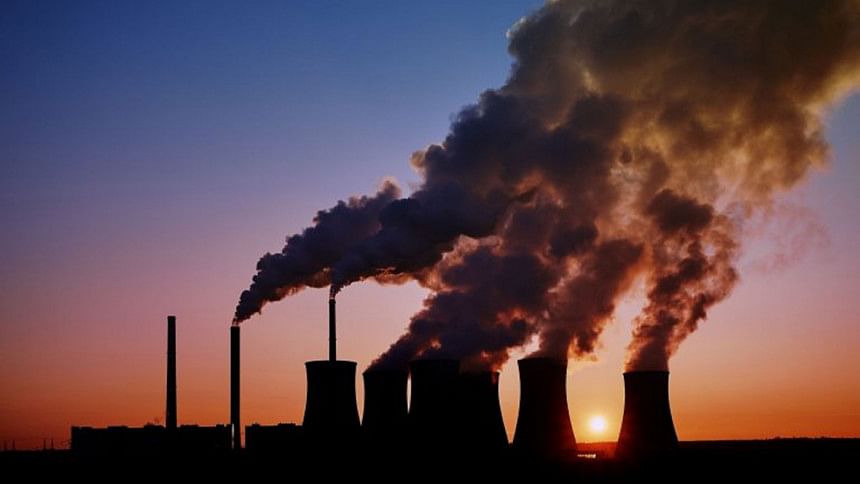Can the G7 leaders rise to the occasion?

The leaders of the G7 countries—consisting of the US, UK, Canada, Japan, Italy, France and Germany—will be holding their annual meeting in the UK in the second week of June and have a number of major issues on their agenda, including how to roll out global vaccination against the coronavirus and how to tackle climate change.
What do they need to do to ensure that the planet stays below the 1.5 degrees Centigrade global temperature that was agreed six years ago in the Paris Agreement on Climate Change, while also supporting the vulnerable developing countries to adapt to the adverse impacts of climate change?
The two cyclones that battered India's west coast from the Arabian sea, followed by the one in the Bay of Bengal that also affected Bangladesh in the last few days, are good illustrations of the fact that the world has passed into the reality of loss and damage from human-induced climate change.
The good news is that the environment ministers of the G7 countries have already met and agreed to phase out new coal plants around the world in order to stay below the 1.5 degrees ceiling. Now, the finance ministers, followed by the prime ministers and presidents, will have to do more when they meet in a few days.
Let me address the responsibility of the G7 finance ministers first. They are the ones who were primarily responsible for delivering on the promise that the developed countries made back in 2015 to provide a minimum of USD 100 billion a year, starting from 2020 onwards, to the developing countries to help them tackle climate change. Unfortunately, the year 2020 has come and gone and this sum was not delivered. It is not clear how much was actually delivered, as there is no transparency regarding which country is supposed to give how much and through which channels.
However, it is widely acknowledged that no more than USD 80 billion was actually delivered by the end of 2020. The main takeaway message here is not that the missing 20 billion would have made a huge difference, but rather that the promises from these same leaders turned out to be meaningless.
Hence, if they wish to regain any sense of credibility, the G7 finance ministers must not only make up the deficit of USD 20 billion due for 2020, but also deliver, not just pledge, the USD 100 billion due in 2021. An important point to make here is that this announcement must be made by the finance ministers now and not in November at COP26, which will be too late.
Another associated shortfall in the delivery of finance to tackle climate change in the developing countries has been the ratio of funding for mitigation versus for adaptation.
The vulnerable developing countries had demanded that half of the total amount should be given for adaptation to the most vulnerable communities in the most vulnerable countries, and this amount should be given as grants, not loans.
However, in practice, only 20 percent of the amounts that were actually delivered was given for adaptation, while 80 percent went into mitigation in the form of loans rather than grants. Hence, the G7 finance ministers must announce that they will deliver USD 100 billion for 2021 now, and half of that will be in the form of grants for adaptation in the most vulnerable countries that are already suffering from the adverse impacts of human-induced climate change. If they were really serious about tackling climate change, they would also commit to funding for the loss and damage from climate change that is affecting the most impoverished populations. This could be done as a gesture of solidarity rather than as compensation.
Finally, the prime ministers and presidents have the biggest role to play in answering a very simple question put to them by their own children and grandchildren, articulated by the 16-year-old Swedish Greta Thunberg—since there is a global emergency, as you now acknowledge, will your actions finally speak louder than your words?
There is no more time for taking only gradual incremental steps and patting ourselves on the back for doing something. The G7 leaders have to do a lot more to genuinely deal with the planetary emergency that we are facing.
The excuse that tackling climate change will take away funding and attention from other important issues is no longer a valid argument. The actions that are needed to deal with the Covid-19 pandemic and its economic consequences, as well as climate change and the loss of biodiversity, are all the same—we need to invest in things that will help people and the planet. It is not rocket science. We definitely cannot go back to the way things were.
Dr Saleemul Huq is Director of the International Centre for Climate Change and Development at the Independent University, Bangladesh.

 For all latest news, follow The Daily Star's Google News channel.
For all latest news, follow The Daily Star's Google News channel. 



Comments